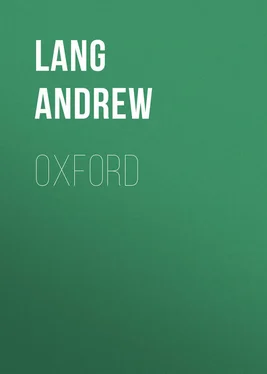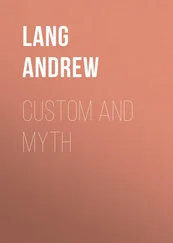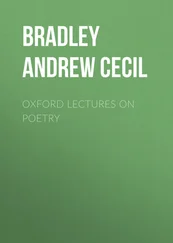Andrew Lang - Oxford
Здесь есть возможность читать онлайн «Andrew Lang - Oxford» — ознакомительный отрывок электронной книги совершенно бесплатно, а после прочтения отрывка купить полную версию. В некоторых случаях можно слушать аудио, скачать через торрент в формате fb2 и присутствует краткое содержание. Жанр: foreign_antique, foreign_prose, на английском языке. Описание произведения, (предисловие) а так же отзывы посетителей доступны на портале библиотеки ЛибКат.
- Название:Oxford
- Автор:
- Жанр:
- Год:неизвестен
- ISBN:нет данных
- Рейтинг книги:5 / 5. Голосов: 1
-
Избранное:Добавить в избранное
- Отзывы:
-
Ваша оценка:
- 100
- 1
- 2
- 3
- 4
- 5
Oxford: краткое содержание, описание и аннотация
Предлагаем к чтению аннотацию, описание, краткое содержание или предисловие (зависит от того, что написал сам автор книги «Oxford»). Если вы не нашли необходимую информацию о книге — напишите в комментариях, мы постараемся отыскать её.
Oxford — читать онлайн ознакомительный отрывок
Ниже представлен текст книги, разбитый по страницам. Система сохранения места последней прочитанной страницы, позволяет с удобством читать онлайн бесплатно книгу «Oxford», без необходимости каждый раз заново искать на чём Вы остановились. Поставьте закладку, и сможете в любой момент перейти на страницу, на которой закончили чтение.
Интервал:
Закладка:
By this trivial example the perversions of old customs at Oxford are illustrated. To appreciate the life of the place, then, we must glance for a moment at the growth of the University. As to its origin, we know absolutely nothing. That Master Puleyn began to lecture there in 1133 we have seen, and it is not likely that he would have chosen Oxford if Oxford had possessed no schools. About these schools, however, we have no information. They may have grown up out of the seminary which, perhaps, was connected with St. Frideswyde’s, just as Paris University may have had some connection with ‘the School of the Palace.’ Certainly to Paris University the academic corporation of Oxford, the Universitas , owed many of her regulations; while, again, the founder of the college system, Walter de Merton (who visited Paris in company with Henry III.), may have compared ideas with Robert de Sorbonne, the founder of the college of that name. In the early Oxford, however, of the twelfth and most of the thirteenth centuries, colleges with their statutes were unknown. The University was the only corporation of the learned, and she struggled into existence after hard fights with the town, the Jews, the Friars, the Papal courts. The history of the University begins with the thirteenth century. She may be said to have come into being as soon as she possessed common funds and rents, as soon as fines were assigned, or benefactions contributed to the maintenance of scholars. Now the first recorded fine is the payment of fifty-two shillings by the townsmen of Oxford as part of the compensation for the hanging of certain clerks. In the year 1214 the Papal Legate, in a letter to his ‘beloved sons in Christ, the burgesses of Oxford,’ bade them excuse the ‘scholars studying in Oxford’ half the rent of their halls, or hospitia, for the space of ten years. The burghers were also to do penance, and to feast the poorer students once a year; but the important point is, that they had to pay that large yearly fine ‘propter suspendium clericorum’ – all for the hanging of the clerks. Twenty-six years after this decision of the Legate, Robert Grossteste, the great Bishop of Lincoln, organised the payment and distribution of the fine, and founded the first of the chests , the chest of St. Frideswyde. These chests were a kind of Mont de Piété, and to found them was at first the favourite form of benefaction. Money was left in this or that chest , from which students and masters would borrow, on the security of pledges, which were generally books, cups, daggers, and so forth.
Now, in this affair of 1214 we have a strange passage of history, which happily illustrates the growth of the University. The beginning of the whole affair was the quarrel with the town, which, in 1209, had hanged two clerks, ‘in contempt of clerical liberty.’ The matter was taken up by the Legate – in those bad years of King John the Pope’s viceroy in England – and out of the humiliation of the town the University gained money, privileges, and halls at low rental. These were precisely the things that the University wanted. About these matters there was a constant strife, in which the Kings, as a rule, took part with the University. The University possessed the legal knowledge, which the monarchs liked to have on their side, and was therefore favoured by them. Thus, in 1231 (Wood, Annals , i. 205), ‘the King sent out his Breve to the Mayor and Burghers commanding them not to overrate their houses’; and thus gradually the University got the command of the police, obtained privileges which enslaved the city, and became masters where they had once been despised, starveling scholars. The process was always the same. On the feast of St. Scholastica, for example, in 1354, Walter de Springheuse, Roger de Chesterfield, and other clerks, swaggered into the Swyndlestock tavern in Carfax, began to speak ill of John de Croydon’s wine, and ended by pitching the tankard at the head of that vintner. In ten minutes the town bell at St. Martin’s was rung, and the most terrible of all Town-and-Gown rows began. The Chancellor could do no less than bid St. Mary’s bell reply to St. Martin’s, and shooting commenced. The Gown held their own very well at first, and ‘defended themselves till Vespertide,’ when the citizens called in their neighbours, the rustics of Cowley, Headington, and Hincksey. The results have been precisely described in anticipation by Homer:
τόφρα δ’ ἄρ οἰχόμενοι Κίκονες Κικόνεσσι γεγώνευν
οἴ σφῖν γείτονες ἦσαν ἅμα πλέονες καὶ ἀρείους
ἦμος δ’ Ηέλιος μετενίσσετο βουλυτόνδε
καὶ τότε δὴ Κίκονες κλῖναν δαμάσαντες ’Αχαιούς.
Which is as much as to say, ‘The townsfolk call for help to their neighbours, the yokels, that were more numerous than they, and better men in battle.. so when the sun turned to the time of the loosing of oxen the Town drave in the ranks of the Gown, and won the victory.’ They were strong, the townsmen, but not merciful. ‘The crowns of some chaplains, viz. all the skin so far as the tonsure went, these diabolical imps flayed off in scorn of their clergy,’ and ‘some poor innocents these confounded sons of Satan knocked down, beat, and most cruelly wounded.’ The result, in the long run, was that the University received from Edward III. ‘a most large charter, containing many liberties, some that they had before, and others that he had taken away from the town .’ Thus Edward granted to the University ‘the custody of the assize of bread, wine, and ale,’ the supervising of measures and weights, the sole power of clearing the streets of the town and suburbs. Moreover, the Mayor and the chief Burghers were condemned yearly to a sort of public penance and humiliation on St. Scholastica’s Day. Thus, by the middle of the fourteenth century, the strife of Town and Gown had ended in the complete victory of the latter.
Though the University owed its success to its clerkly character, and though the Legate backed it with all the power of Rome, yet the scholars were Englishmen and Liberals first, Catholics next. Thus they had all English sympathy with them when they quarrelled with the Legate in 1238, and shot his cook (who, indeed, had thrown hot broth at them); and thus, in later days, the undergraduates were with Simon de Montfort against King Henry, and aided the barons with a useful body of archers. The University, too, constantly withstood the Friars, who had settled in Oxford on pretence of wishing to convert the Jews, and had attempted to get education into their hands. ‘The Preaching Friars, who had lately obtained from the Pope divers privileges, particularly an exemption, as they pretended, from being subject to the jurisdiction of the University, began to behave themselves very insolent against the Chancellors and Masters.’ (Wood, Annals , i. 399.) The conduct of the Friars caused endless appeals to Rome, and in this matter, too, Oxford was stoutly national, and resisted the Pope, as it had, on occasions, defied the King. The King’s Jews, too, the University kept in pretty good order, and when, in 1268, a certain Hebrew snatched the crucifix from the hand of the Chancellor and trod it under foot, his tribesmen were compelled to raise ‘a fair and stately cross of marble, very curiously wrought,’ on the scene of the sacrilege.
The growth in power and importance of academic corporations having now been sketched, let us try to see what the outer aspect of the town was like in these rude times, and what manner of life the undergraduates led. For this purpose we may be allowed to draw a rude, but not unfaithful, picture of a day in a student’s life. No incident will be introduced for which there is not authority, in Wood, or in Mr. Anstey’s invaluable documents, the Munimenta Academica , published in the collection of the Master of the Rolls. Some latitude as to dates must be allowed, it is true, and we are not of course to suppose that any one day of life was ever so gloriously crowded as that of our undergraduate.
Читать дальшеИнтервал:
Закладка:
Похожие книги на «Oxford»
Представляем Вашему вниманию похожие книги на «Oxford» списком для выбора. Мы отобрали схожую по названию и смыслу литературу в надежде предоставить читателям больше вариантов отыскать новые, интересные, ещё непрочитанные произведения.
Обсуждение, отзывы о книге «Oxford» и просто собственные мнения читателей. Оставьте ваши комментарии, напишите, что Вы думаете о произведении, его смысле или главных героях. Укажите что конкретно понравилось, а что нет, и почему Вы так считаете.












